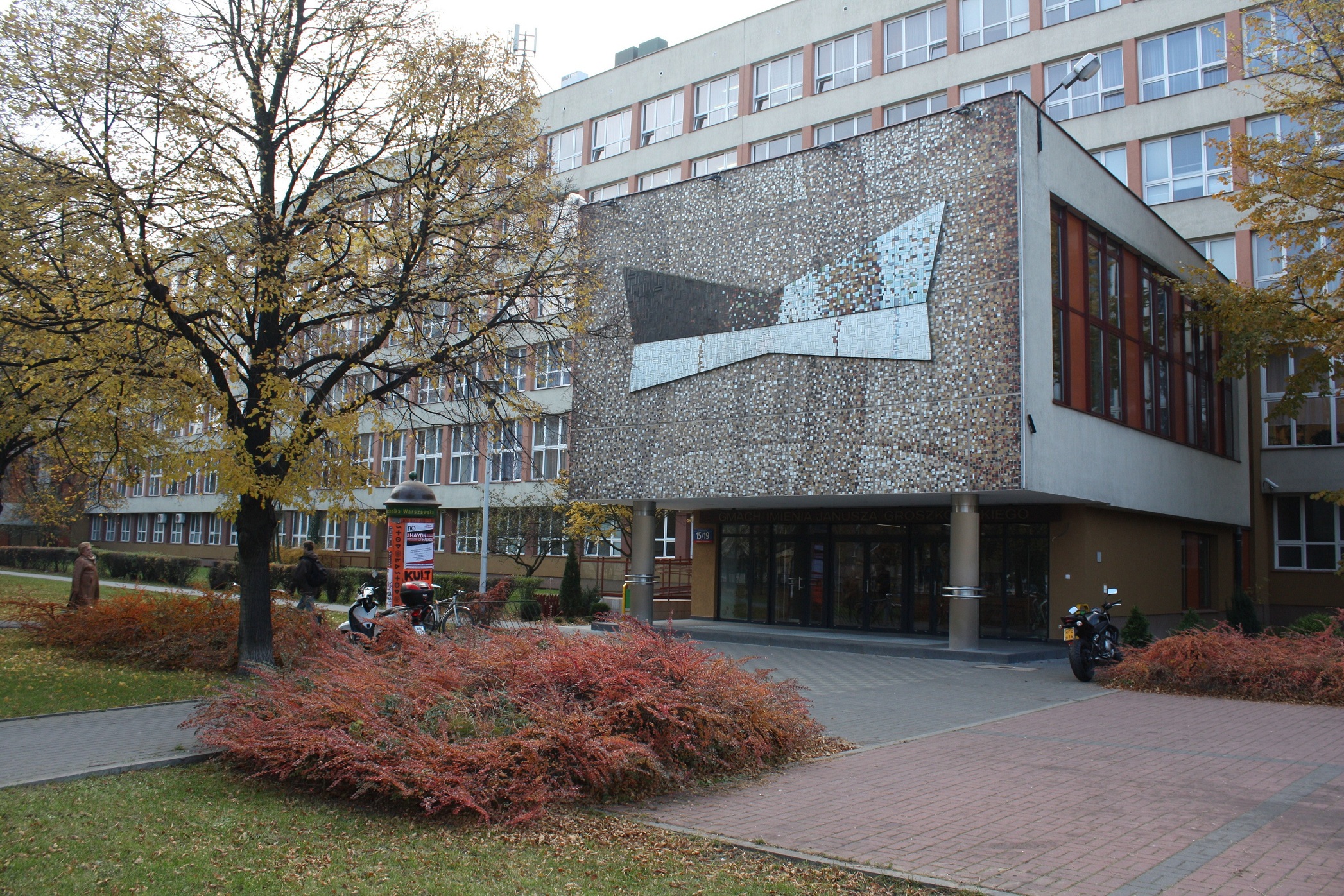Venue and Travel
The FACULTY of ELECTRONICS and INFORMATION TECHNOLOGY occupies a large, 20600 m2 building located at the University’s main campus, just one kilometer from downtown Warsaw. It is the largest teaching and research center at the Warsaw University of Technology. Its educational and research activities cover almost the whole spectrum of electrical and computer engineering — from microelectronics and optoelectronics, through instrumentation, measurement, control and robotics, to computer networks and telecommunications.
The Faculty of Electronics and Information Technology is one of the largest faculties at WUT. It offers three levels of education in the area of Electrical and Computer Engineering leading to the Bachelor of Science (B.Sc.), Master of Science (M.Sc.) and Doctor of Philosophy (Ph.D.). Our students and cooperative research institutions come from 30 different countries. The Faculty employs 300 members of the academic staff (including 27 invited foreign professors), tutoring 3800 students. We offer courses and training authorized and certified by Cisco Systems. The Faculty has 12 cooperation agreements, with South Korea, Australia, USA, Russia and Luxembourg being among them. Our education and research cover almost whole spectrum of electrical and computer engineering – including microelectronics, optoelectronics, electronic systems, instrumentation, measurement, biomedical engineering radio- and telecommunications, computer science, control and robotics. Research is conducted in six Institutes. These are:
– Institute of Computer Science – one of the oldest computer research centers in Poland; a place where one of the first Polish computers was designed (UMC-1) in the early 50-ties of the XX century
– Institute of Control and Computation Engineering – where the modeling, controlling optimization and simulation of complex systems takes place
– Institute of Microelectronics and Optoelectronics – its highlights are the design, development and characterization of fiber-optic components and advanced technologies of silicon microelectronics and nanoelectronics
– Institute of Electronics System – the mekka for sensore networks and measurement-control systems and radar systems simulators
– Institute of Radioelectronics – with Integrated Wireless Sensing and Reconfigurable Systems for Mobile Local Communication and Positioning granted projects
– Institute of Telecommunications – leading the application of advanced modulation methods in broadband wireless networks employing visible light.
Currently the Faculty of Electronics and Information Technology is involved in 48 research projects. Among them the more interesting ones are the Future Internet Engineering project, Photonic & Terahertz Technologies Center (FOTEH), Integrated Mobile System for Counterterrorism and Rescue Operations project (the Proteus Project) and the Human Brain Project (HBP). The objective of the Future Internet Engineering is to design, prototype and test new network infrastructure for Future Internet, named System IIP. The FOTEH Center is created as a part of a project financed by European Union from resources of European Regional Development Fund within Innovative Economy Programme. The Proteus Project is aimed at development of a modern system, which in the future will be able to support operations of police, fire service and the other services responsible for security of our society. The designed system will include i.a.: three multifunctional robots, unmanned aircraft and mobile command centre. The HBP is a ten-year, large-scale European research initiative whose goal is to understand the human brain and its diseases and ultimately to emulate its computational capabilities.

